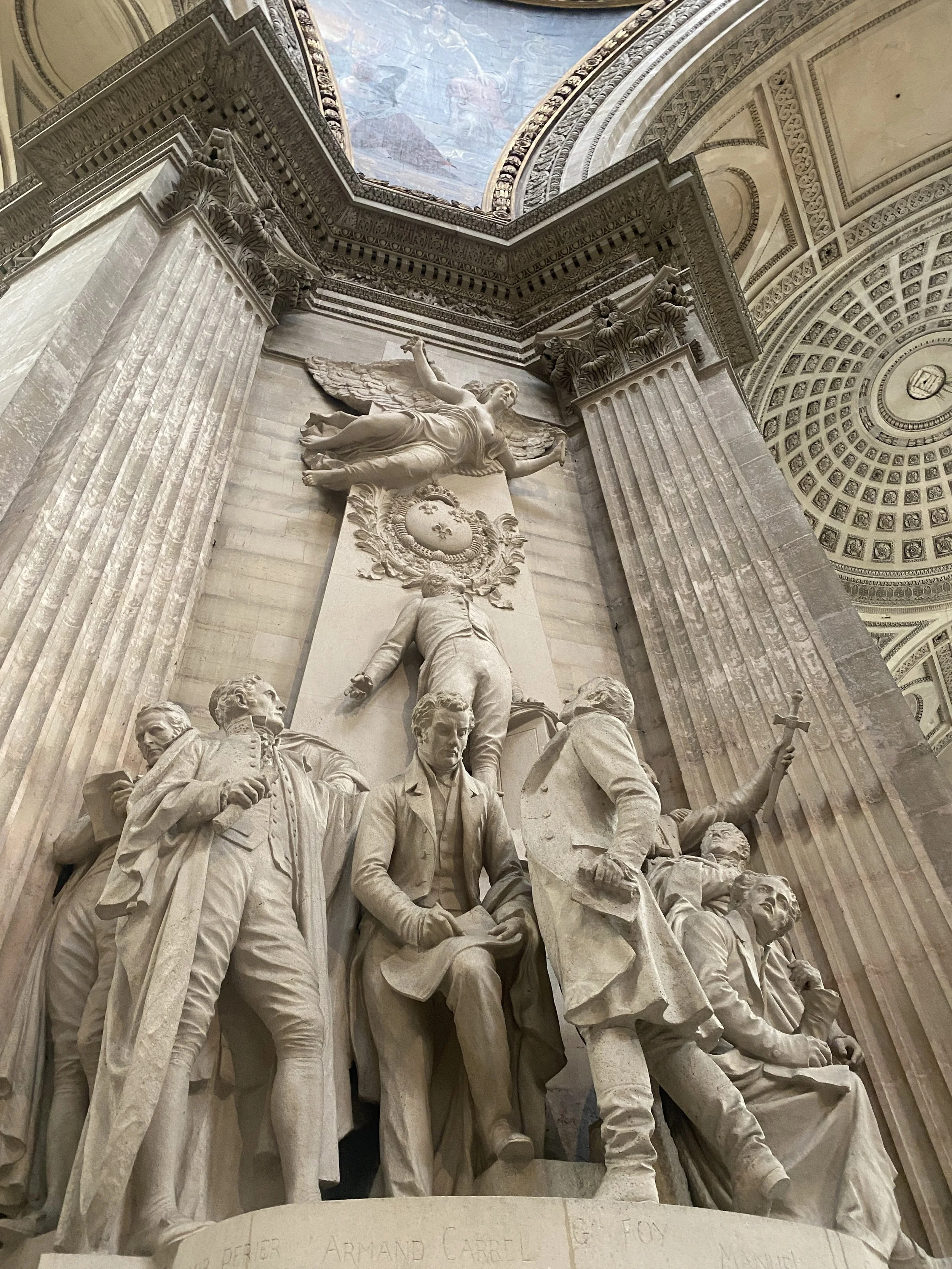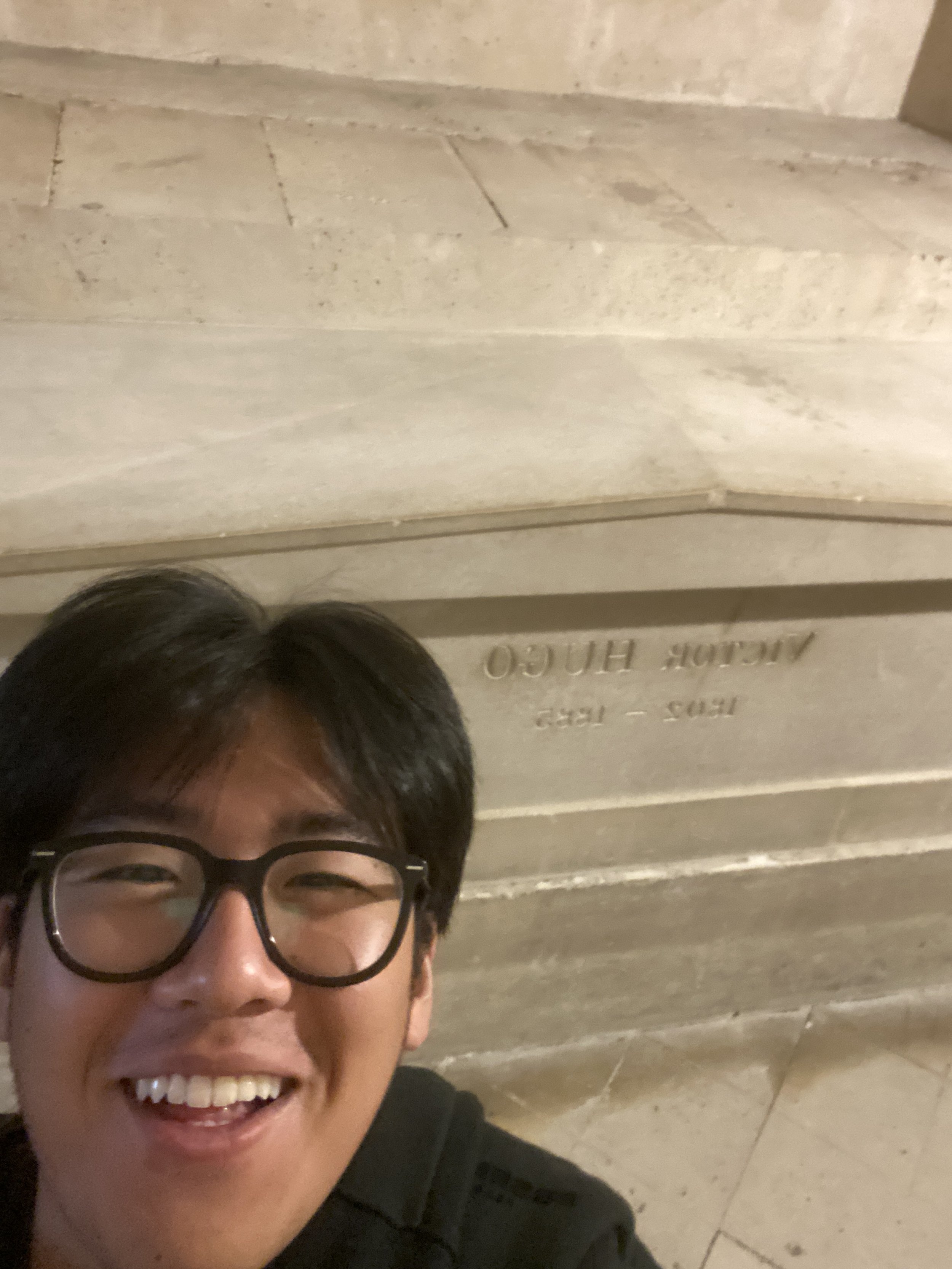In this final chapter of my bookpacking adventure, I'm enveloped by a profound sense of nostalgia. As I meander through the historic streets of Paris, I am not just a tourist but a time-traveler, following in the echoes of Victor Hugo’s intricate characters from Les Misérables. Every alleyway, every facade, every whisper of the wind, feels familiar, as though the pages of this beloved novel have come to life around me. This fusion of literature and reality, this immersive experience I've intimately come to understand as "bookpacking", has profoundly altered my perception of the world. It’s not just about reading a novel; it's about living within its pages, feeling its emotions, and understanding its surroundings. As I pen down this narrative, the realization that this is my concluding blog entry makes each word, each memory, even more cherished. The culmination of this journey brings with it a sense of closure, but also an overwhelming gratitude for the stories lived and lessons learned. Starting my day at the intersection of Rue Plumet and Rue de Babylone, the atmosphere around me seemed to pulse with remnants of Marius’ impassioned steps. The streets, still marked by the weight of history, brought forth vivid images of Marius in the throes of revolution, his heart heavy with love and duty. With every stride I took on those age-old cobblestones, I could almost hear the distant rumblings of revolutionaries, the fervent whispers of plans, and the hopeful songs of freedom. These sounds seemed to blend seamlessly with memories of my earlier bookpacking adventures, creating a rich tapestry of narrative and history. The tangible connection to Marius' world made me feel less like a mere observer and more of a participant, momentarily living within the pages of Hugo’s masterpiece. Making my way towards Les Invalides, the looming majesty of L’Église du Dôme and the solemnity of Napoleon’s Tomb weren't merely historical landmarks; they pulsated with the emotions, conflicts, and aspirations that provided the very foundation for Les Misérables. Each ornate detail, each shadowy corner seemed to echo with the voices of Hugo's characters, a testament to the time when France's political turmoil and social upheaval intersected with personal tales of love and loss. Stepping into the Musee de l’Armee was akin to diving into a time capsule. The meticulously preserved Napoleonic galleries, with their depictions of pivotal moments, and the luminous uniforms of the Grande Armée stood as silent witnesses to the era that inspired Hugo's narrative. As I explored, it was almost as if the pages of the novel had come alive around me, intertwining real history with Hugo's literary brilliance. As I approached Victor Hugo’s residence, I swelled with a myriad of emotions. The house was more than bricks and mortar; it was the crucible where Hugo's imagination forged the intricate universe of Les Misérables. I could almost sense his presence, feeling the fervor of his creativity seeping through the walls. Every winding alley of Paris, from the historic Rue des Archives to the treasures hidden within the Musée Carnavalet, seemed to have imbibed a part of Hugo's essence, making the city a living testament to his genius. The descent into the Musée des Égouts de Paris was a surreal experience. The cold, damp atmosphere, the labyrinthine tunnels, all invoked the palpable desperation Valjean must have felt as he trudged through the sewers, Cosette's future hanging in the balance. Hugo's words painted the bleakness and hope of this scene so vividly that being there made me relive those intense emotions. Then, as I emerged, squinting against the daylight, the Eiffel Tower stood tall, a juxtaposition of Paris's rich history and its modern promise. Much like the journey of the characters in Les Misérables, it embodied the struggles and triumphs, the tragedies and the hopes, that define the human spirit. Stepping back to muse upon my bookpacking odyssey through Paris and beyond, the depth and breadth of the metamorphosis I've experienced becomes astoundingly clear. This journey has transcended the confines of mere travel or the immersive allure of literature. Instead, it birthed a captivating confluence of both, a symphony where each note of written word seamlessly merged with real-world experiences. As I pen down this chapter, my concluding blog entry, my heart is replete with vivid memories, invaluable insights, and a profound reverence for the delicate interplay between the world of fiction and the palpable reality around us. Through the immersive lens of bookpacking, literary masterpieces weren't merely devoured by eyes; they were felt by the heart, witnessed by the soul, and ultimately, lived in the truest sense.
Wrapping up my bookpacking narrative, I’m filled with an overwhelming sense of gratitude and awe. Over the course of numerous blogs, I've traversed the bustling streets of London and the romantic boulevards of Paris, not merely as a tourist, but as an eager participant in a literary dance that spanned centuries.
London, with its gray skies and historic architecture, breathed life into the pages of Dickens. I walked its cobblestone streets, each stone echoing the footsteps of Oliver Twist and the resolute ambitions of Pip. These pathways, laden with tales of Victorian-era struggles and triumphs, were no longer just remnants of a time gone by, but very much alive with narratives waiting to be uncovered.
Paris, on the other hand, was a heady blend of romance and revolution. Through the eyes of Victor Hugo, the city's grandeur took on a different light. From the hallowed grounds of Les Invalides to the shadowy depths of the Musée des Égouts, every site reverberated with the voices of Valjean, Javert, Cosette, and the many souls of Les Misérables. As I explored, it felt as if Hugo himself was guiding me, introducing me to the very soul of Paris.
But bookpacking was more than just literary sightseeing; it was an immersion. With every site visited and every tale revisited, I deepened my understanding of the symbiotic relationship between literature and its geographical muse. The landmarks were not just made of bricks and stones; they were repositories of stories, memories, and legacies. They whispered secrets of bygone eras, of lovers' trysts, and of revolutions that shaped societies.
Taking a step back and contemplating my entire bookpacking experience, I'm filled with an overwhelming realization. The act of bookpacking transcended traditional learning, transporting me into a realm where fiction melded seamlessly with reality. My sojourn in London and Paris wasn't just an exploration of cities but a deep dive into the heart of literature itself.
As I pen down this concluding note, the weight of this being my final blog in this series is palpable. Yet, rather than an end, I see it as a doorway to countless more adventures that await. Literature, after all, is vast, and our world, rich with tales waiting to be lived. Thank you, dear cities, for being such gracious hosts, and thank you, dear readers, for accompanying me on this enchanting journey. The power of literature and the magic of cities, when intertwined, have given me stories I will cherish forever.


